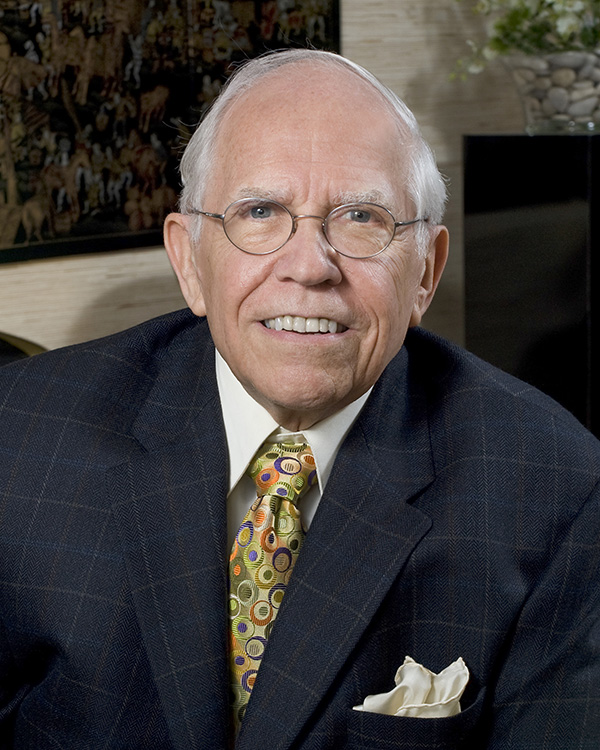
For Jim Albrecht (FE ’53, M.S. ’55), it all started with an article in Illinois Tech Magazine. In fact, Albrecht keeps a few copies of the winter 2012 issue on hand because the vertical-farming article “The Plant” proved to be so important to his support for Illinois Institute of Technology’s IPRO Scholarship Fund over the last eight years.
“All my career, I’ve been a big believer in a multifunctional approach to solving business problems,” says Albrecht. “I’ve always tried to avail myself of meetings where all the business functions are involved. Well, along comes IPRO, and it’s kind of a cousin of what I’ve just described.”
Albrecht spent his entire career in the food industry, working for big-name brands such as Coca-Cola, Nestlé, and McCormick, so he was well aware that the vertical-farming project he read about in the alumni magazine was a major innovation for agribusiness. Inspired by IPRO’s unique approach, Albrecht began regularly supporting the program and taking biannual trips to Mies Campus from his home in Baltimore to meet with students and to hear about the problems they were tackling with their IPRO projects.
“I love the multidisciplinary approach that IPRO uses to solve problems that are future-thinking. These are real-world problems, and not science for science’s sake alone,” he explains. “And it’s exciting to see, for example, the kind of input an Institute of Design student might have when working with an engineer or a biologist. Students from different disciplines tend to think outside of the box in these problem-solving situations.”
Albrecht dedicates most of his philanthropic efforts to supporting and mentoring young people. In 2019 he was so inspired by an IPRO project that he invited Sadie Meunier (BCHM 4th Year) to visit the Institute of Marine and Environmental Technology (IMET) in Baltimore
“Sadie’s IPRO team has been working with Synechococcus bacteria, which may have a unique ability to reduce marine microplastic pollution through a degradation process. When you talk to Sadie, she’ll give you a great explanation of her IPRO project,” says Albrecht, noting that she had the chance to meet with IMET researchers who were working on very similar technology.
Albrecht’s enthusiasm for the IPRO Program is born of his own concern with the future of life on Earth, and he appreciates the way his support powers big, real-world solutions to major challenges. He also notes that Illinois Tech has a small student population relative to other universities but has a wide variety of disciplines, backgrounds, and unique selling points.
“Students aren’t locked into a box that says ‘I’m an electrical engineer, I can only think about electrical engineering.’ If someone comes up with a hare-brained idea about zinc batteries for cars, an electrical engineering student might say, ‘Wait a minute, I have a bunch of questions. And if I like the answers, I might work with you on the project,’” explains Albrecht, concluding with what he finds so exciting about projects such as The Plant. “Collective genius is at work in these multidisciplinary IPRO groups.”